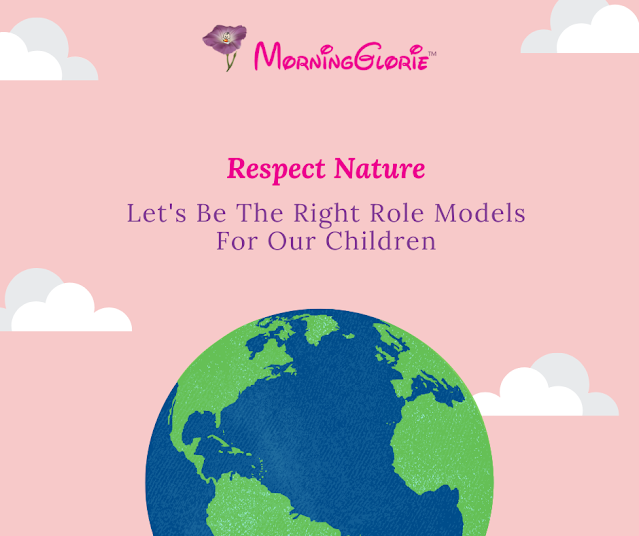I know this sounds big, and it fundamentally is. Just like we expect to be treated with respect, nature would like it too. But again, just like it's the simple actions which denote respect in our interactions with each other - parent and child, teacher and child, friends (irrespective of age), colleagues and acquaintances - it's the simple actions that denote our respect towards nature and Mother Earth as well.
For parents and educators alike - children look up to us, and emulate our behaviour. So always, always, always, only "preach" (for the lack of a better term) what you practice yourself! And if there is something you are not doing, which you would like them to do, then learn to do it together - the onus is on you, not them, not yet.
For parents, educators as well as the children - how can we respect nature?
GREEN EARTH EQUALS CLEAN EARTH
Plant more trees
Make this an activity to do with your children. Plant seeds with them, nurture those seeds. Speak with the children on the importance of a green earth.
At a more basic level, do not pluck flowers, or grass, or leaves. This is actually the first step towards teaching children to respect nature. Teach them to pick fallen flowers or leaves to play with.
Reduce your dependence on paper
Did you know that for every 15 reams of paper produced, one tree has to be cut down? This may not sound like much, but if you calculate the number of reams you end up using on an average, and then try to imagine the number of trees that are cut down each year the world over, it makes for a scary picture. Just imagine the amount of oxygen you are letting go of, or the amount of air pollution which could have been absorbed by the trees, or washed away by the rains, if each individual could have reduced their dependence upon paper.
We can all take a few simple steps to reduce our paper footprint.
- Reuse paper products where possible - single sided stationery, soap/cereal cartons etc
- Reduce usage of avoidable paper products - toilet paper, tissue paper (carry cloth handkerchiefs. These are reusable)
- Switch to e-bills wherever possible
- Do not use disposable plates/glasses/spoons etc - paper or plastic. Carry your own set of cutlery wherever possible
- Carry cloth bags to the market instead of asking for paper bags
Cutting down of trees is a government decision. But we can always make our voices heard
KEEP YOUR SURROUNDINGS CLEAN
- Do not litter
- Encourage others around you to not litter. And remember, this can and should be done politely. There is no need to be rude or judgmental towards others
SOME OTHER BASICS
- Save water
- Conserve your resources - use only what needs to be used, avoid wasteful consumption
- Love and respect animals






Comments
Post a Comment